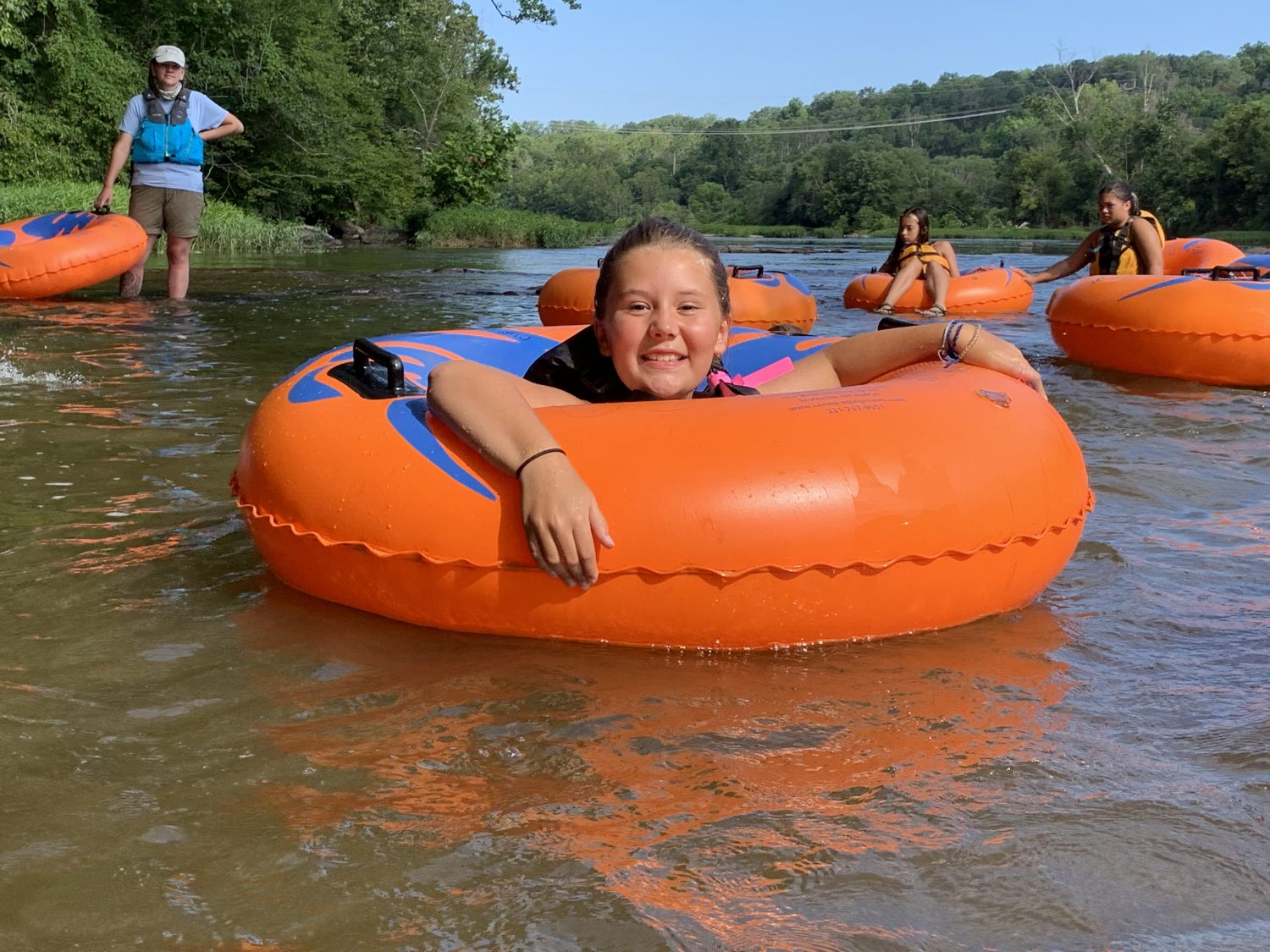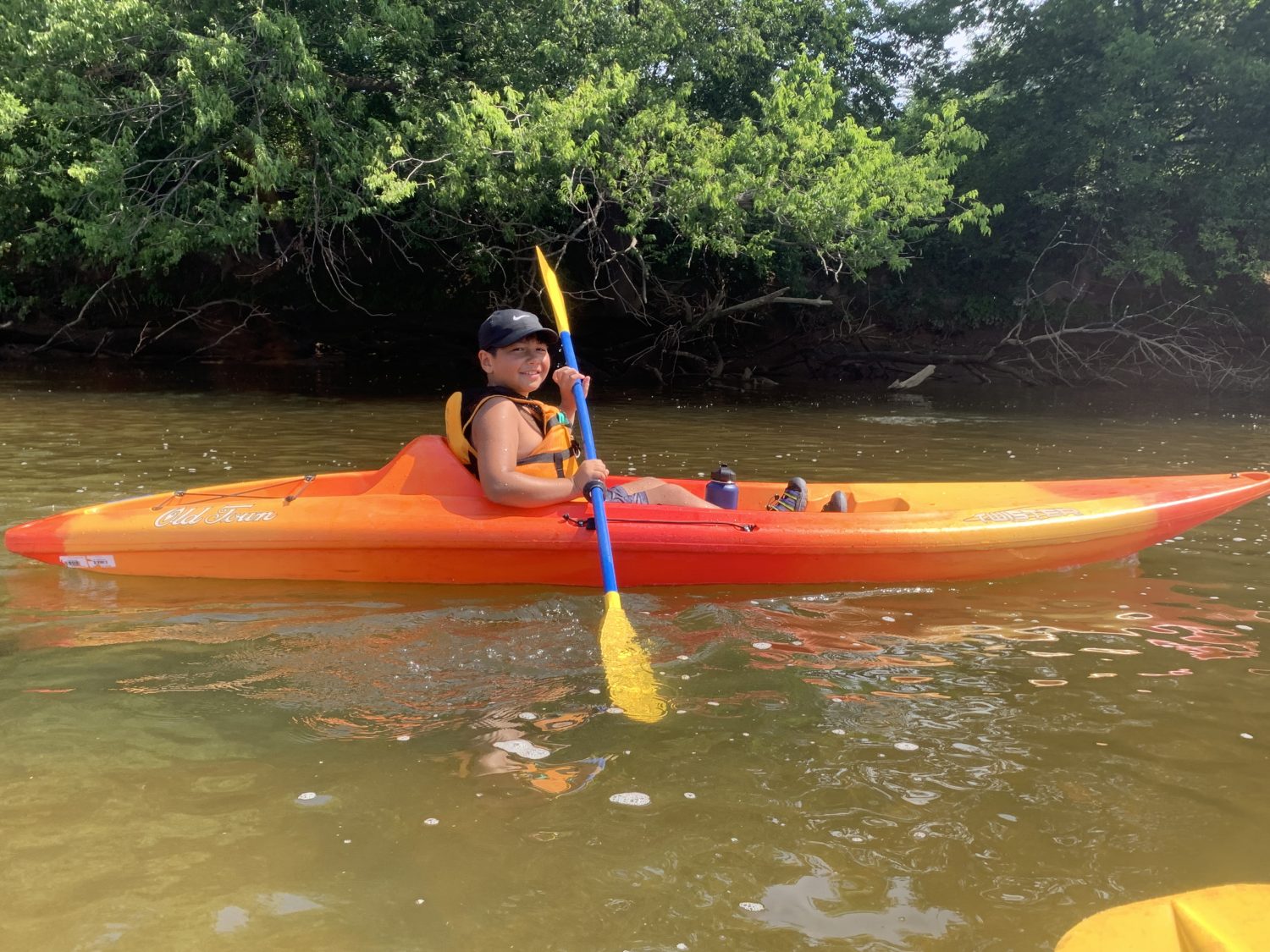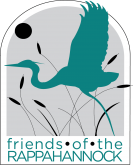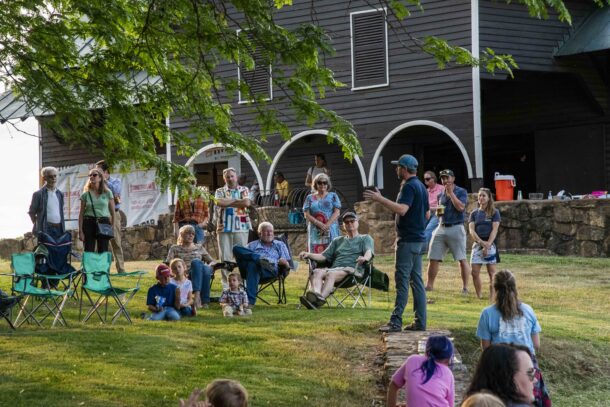 In 2020, FOR adjusted our approach to environmental education to support teachers and families. Normally, classrooms of students visit us for field trips at our 17-acre nature preserve for a wide range science and environmental lessons. We also visit classrooms to teach hands-on Meaningful Watershed Educational Experiences (MWEEs) as part of our National Oceanic and Atmospheric Association grant. Yet, just like paddling a different kayak can teach us new skills COVID-19 safety guidelines caused us to change and expand our program offering. To accommodate COVID-19 guidelines we adapted our methods. By doing so, we created exciting new ways to reach our younger river stewards.
In 2020, FOR adjusted our approach to environmental education to support teachers and families. Normally, classrooms of students visit us for field trips at our 17-acre nature preserve for a wide range science and environmental lessons. We also visit classrooms to teach hands-on Meaningful Watershed Educational Experiences (MWEEs) as part of our National Oceanic and Atmospheric Association grant. Yet, just like paddling a different kayak can teach us new skills COVID-19 safety guidelines caused us to change and expand our program offering. To accommodate COVID-19 guidelines we adapted our methods. By doing so, we created exciting new ways to reach our younger river stewards.
We designed a Summer Camp experience that followed all the guidelines laid out in the American Camp Association’s Field Guide for Camp document. We scaled our usual 8 weeks back to 5 weeks to start after the governor placed Virginia in Phase II. Instead of full day camps, we held a 3-hour, morning camp featuring a different river experience each day of the week. Most days parents dropped campers off at a starting point like Old Mill Park. We would paddle kayaks to City Dock where parents would pick up their campers. Friday was quarry day! Campers would arrive at FOR and walk to the quarry with us where we would already have all the watercraft awaiting their arrival. We were pleased to offer an opportunity for children to safely learn and play outside.

Our Field Trip staff usually host students on our property as part of their school’s field trip program. This year we developed our Outdoor Learning Labs (OLLs), a weekly series of science, STEM, and environmental classes aimed directly at families. Once a week we held morning and afternoon sessions on science related subjects. Some weeks were spinoffs of our regular field trips like The Jamestown Settlement survival and Hydropower (building waterwheels). Other weeks featured completely new subject matter like Bird Watching Through Citizen Science and Primitive Fire Building Methods with S’mores.
We were able to provide environmental education throughout the Rappahannock River watershed. In the Upper Rappahannock region, we hosted outdoor education programs at parks in Fauquier and Rappahannock counties. Children participated in macroinvertebrates and build-a-barge lessons and also joined us in river clean ups. The students caught and released dragonfly larvae, snails, baby turtles and fish! In the Lower Rappahannock region, we were able to work with schools to complete tree planting projects and provide kayaking trips for students. Students at Montross Middle School used EPA sub-grant funding to create an outdoor classroom space. At Chesapeake Bay Governors school, we provided funding for students to have at-home equipment for field data collection to support water quality studies.
We provide teacher support for MWEEs in our grant in partnership with NOAA and Spotsylvania and Caroline Counties which allows us to potentially interact with another 13,000 students each year. In lieu of in person teaching we devised several means to support our teacher partners through digital education lessons. We created websites filled with lessons, presentations, and instructional videos. We created take home water quality testing kits. We developed a virtual field trip showing points of interest along the Rappahannock River from the headwaters to the bay. We make our materials and equipment available to our partner schools with instruction on how to conduct our Environmental-STEM labs. These digital options are allowing us to continue grant partnerships while in person options are limited.
FOR staff created several new educational videos highlighting various aspects of our work. Our Creek Critters video shows how to collect and identify macroinvertebrates to determine water quality. Our shedding house video tells about the life cycle of the blue crab and what that means to local watermen. Our Parts of a Tree video show the form and function of the different parts of a tree. Our talented staff also developed a coloring book featuring native plants and animals to delight our young artists.
COVID-19 caused us to adapt the way we approached educating our young river stewards this year. However, just like we never regret the chance to paddle a new watercraft, we likewise don’t regret accommodating COVID-19. We have the innovative online products, new programs, and new ways to reach families which make this run a positive experience for all our developing river stewards.
-Nancy Stalik, FOR Education Manager

